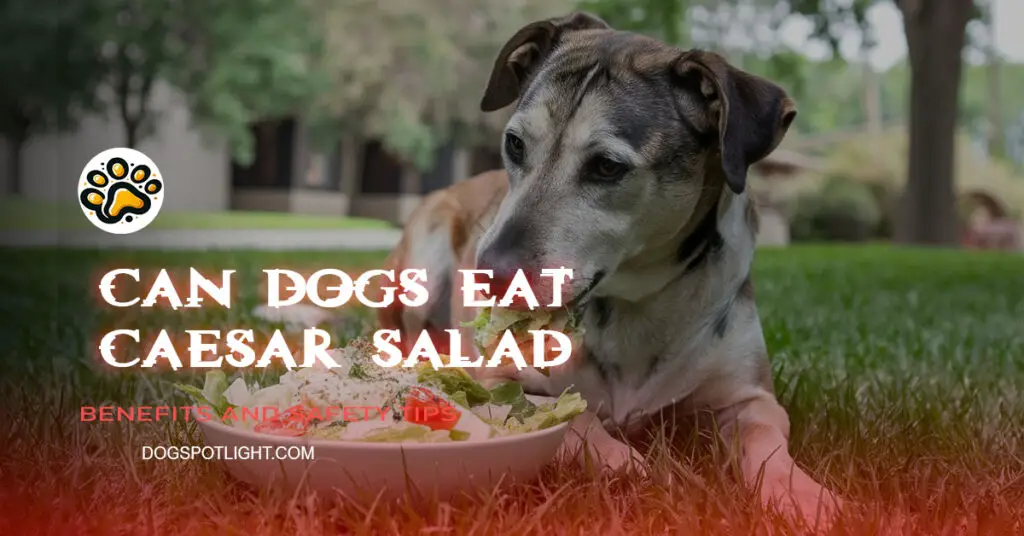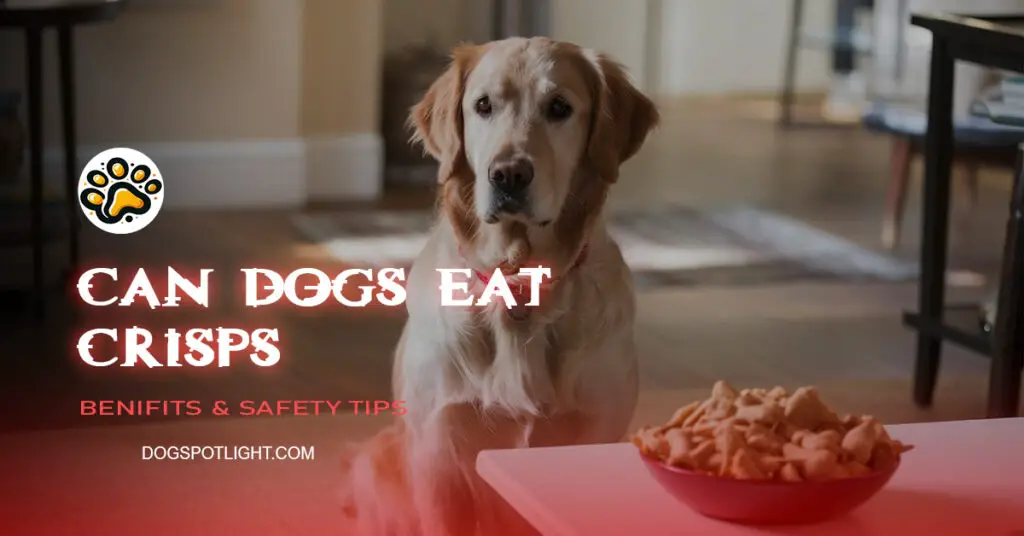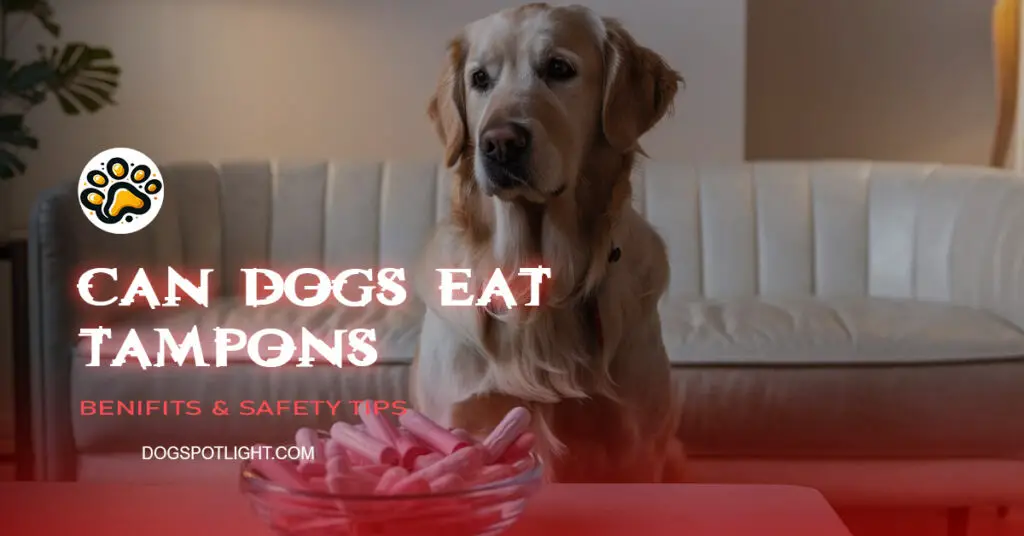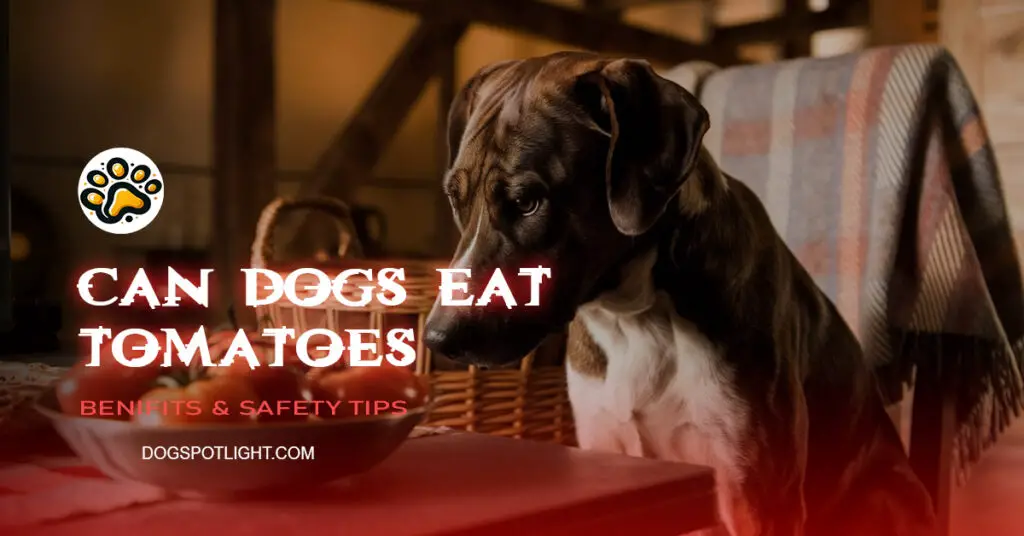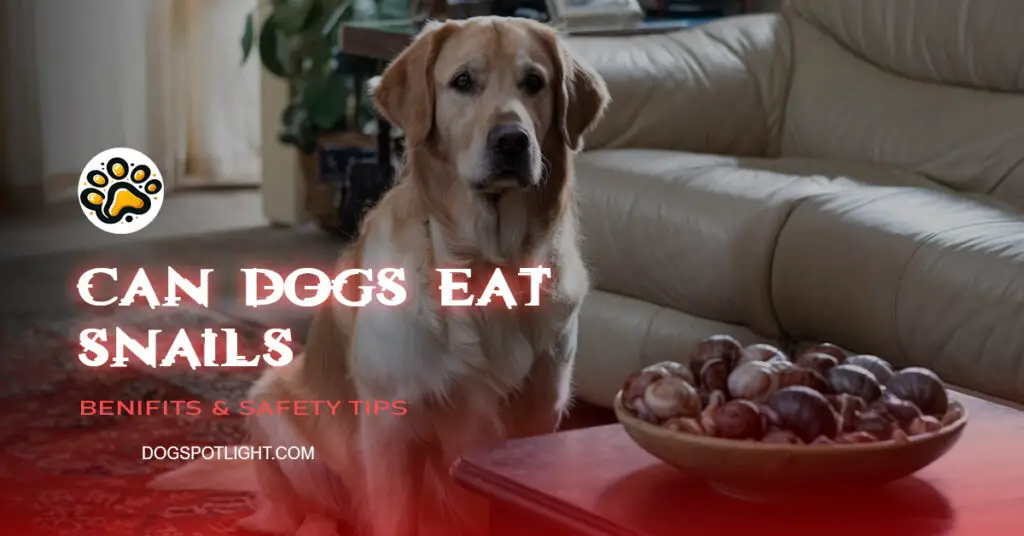Are you looking for a healthy food and nutrition treat for your dog? A question arises that can dogs eat caesar salad? In the articles we explore the details of caesar salad and whether it’s safe for a dog diet.
Some elements in Caesar salad, including lemon juice, onions and garlic, could be dangerous for dogs. Pet owners find it difficult to feed their dogs toxic meals without knowing that the ingredients are dangerous.
In the articles, we will cover the details of Caesar salad and include its benefits and risks and see how they can affect your dog’s health.
Can Dogs Eat Caesar Salad?
No, dogs should not eat Caesar salad. It often contains harmful ingredients like garlic, onions, and high-fat dressing, which can be toxic to dogs.
What Is Caesar Salad?
Caesar salad is a classic salad dish which is made of Crisp cabbage, croutons, mozzarella cheese, and Cesar dressing. Olive oil, lemon juice, sauce made with Worcestershire, Dijon mustard and garlic make up the dressing. Italian Caesar Cardini developed Caesar salad in 1920.This salad has several versions, but the traditional is always a favorite. It’s easy to make and always tasty.
Is Caesar Salad Good For Dogs?
Caesar salad is not good for dogs because several ingredients may be harmful for dogs like garlic, onions, salt, cheese ,which cause illness, diarrhea and gas. if your dogs eat ceasar dressing then you are required to keep a close eye on the dog and you should consult the vet as well.
Can a Dog Eat Chicken Caesar Salad?
No ,dogs cannot eat chicken caesar salad because it included some ingredients that can be dangerous for dogs. If you are looking for healthy and nutritious food treats for dogs,you can try boiled chicken and plain rice.
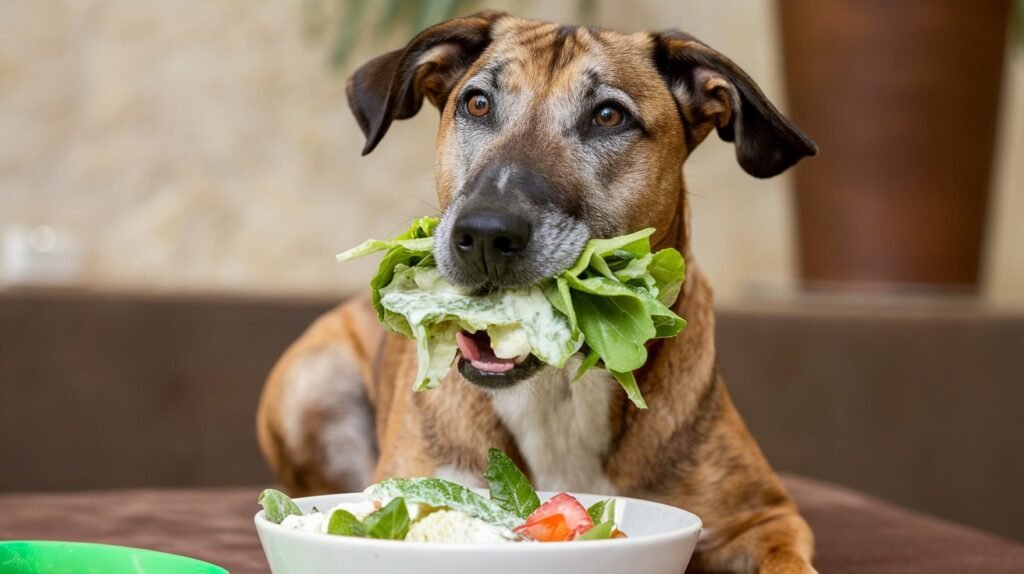
Table Of Nutrients In Caesar Dressing For Dogs
| Nutrient/Ingredient | Amount (per serving of Caesar dressing) | Impact to dogs |
| Calories | 160-200 kcal | When excessive, it might lead to weight gain. |
| Fat | 16-18g | High fat can lead to diabetes or obesity. |
| Sodium (Salt) | 300-500mg | Can harm you with sodium ions, that can make you thirsty, nervous, or have pain. |
| Garlic | Present (varies by recipe) | Bad for dogs; it damages their red blood cells and causes bleeding. |
| Protein | ~2g | Not very helpful, but other things make up for it.Bad for dogs; it damages their red blood cells and causes anemia. |
| Cholesterol | 30-40 mg | It might be hard for a dog to handle food if it has too much cholesterol. It might even get diarrhea. |
| Sugar | 1-2g | Can cause weight gain and possible digestive upset. |
| Calcium (from Parmesan) | ~30mg | Small amounts might not be dangerous for dog, but some dogs can’t handle lactose, which can make their digestion problems worse. |
| Anchovies (Omega-3) | Varies (depending on the amount used) | Omega-3 can be good for dogs in small amounts, but too much of it is harmful because it contains salt. |
Symptoms Of Caesar Salad
If your dog accidentally eats Caesar salad, watch for signs of illness. Garlic and salted anchovies can harm dogs.some symptoms of caesar salad are:
- Vomiting
- Diarrhea
- Weakness
- Upset Stomach
- Lethargy
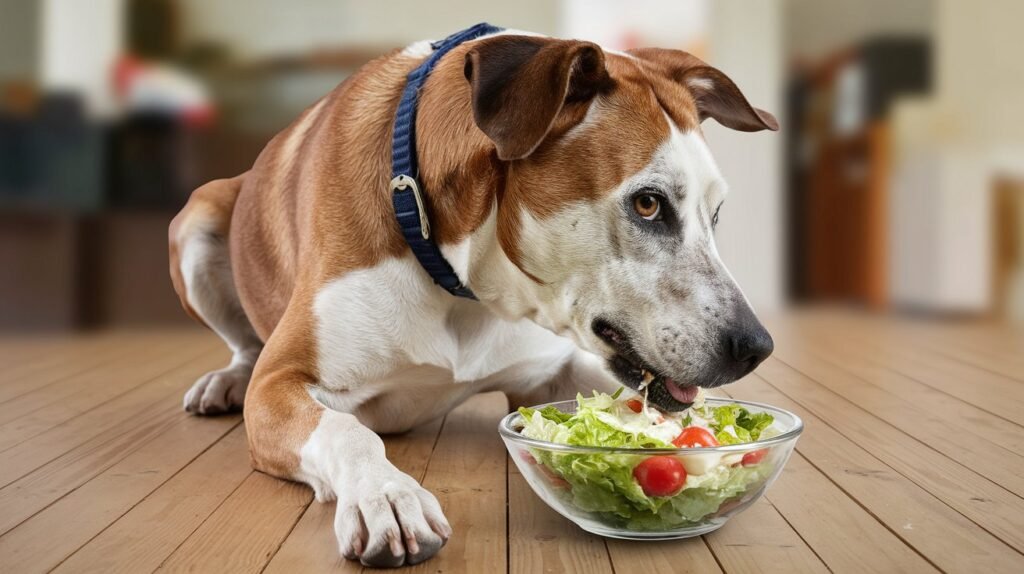
Advantages Of Caesar Salad:
Advantages of caesar salad following are:
- Romaine lettuce is safe and hydrating for dogs.
- Dog coats benefit from omega-3 fatty acids in anchovies.
- Plain, unseasoned chicken provides nutritious protein.
- Fiber-rich lettuce is low-calorie.
Disadvantages of caesar salad:
following disadvantages of caesar salad are:
- Cesar dressing garlic and onions are toxic to dogs.
- The salt toxicity from anglovies.
- Cheese and dressing might cause diarrhea and gas.
- High-fat Caesar dressing can cause pancreatitis.
Risks Of Caesar Salad For Dogs:
Caesar salad contains elements that can harm your dog. You might want to know if dogs can have Caesar dressing, but most of the time, the answer is “no.” This is why:
| Ingredient | Risks to Dogs |
| Garlic | Extremely toxic to dogs; damages red blood cells and causes anemia. |
| Anchovies | high in salt, which dogs may get sodium ion damaged too. |
| Parmesan Cheese | Many dogs have glucose allergies; cheese may cause stomach problems. |
| Caesar Dressing | typically has high fat, garlic, and hazardous additions along with salty taste. |
| Raw Eggs (in dressing) | Particularly in raw form, risk of bacterial disease. |
In summary, we can say that caesar salad is not safe for dogs because it contains some ingredients like garlic, onion, cheese etc. That may be harmful for dogs that cause diarrhea, upset stomach and illness. As a pet owner caesar salad or chicken caesar salad is delightful meal for you, it’s not something you should share with your dog.so you can try alternative food like boiled chicken and plain rice. To keep your dog happy and healthy, prioritize his health and see your vet for dietary suggestions.

